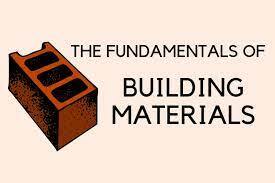Testing Certification Construction materials testing is a vital part of any building project. It ensures that the materials used are of the highest quality and are safe for use in the construction process. Certification in construction materials testing can help you become a qualified and experienced professional who can provide the necessary testing services. Here are 7 things to know about construction materials testing certification.
1. Construction Materials Testing Certification is Necessary: In order to become a qualified construction materials testing professional, you must obtain certification. This certification is usually provided by professional organizations such as the American Society for Testing and Materials (ASTM).
2. Certification Requirements: Depending on the certification organization, there may be a variety of requirements that need to be met in order to obtain certification. These may include passing a written exam, obtaining relevant experience, and demonstrating the necessary knowledge and skills related to construction materials testing.
3. Common Testing Procedures: Common testing procedures used in construction materials testing include physical tests, chemical tests, and environmental tests. Physical tests involve assessing the physical properties of a material, such as its strength, durability, and hardness. Chemical tests involve assessing a material’s chemical composition. Environmental tests involve assessing a material’s ability to withstand different environmental conditions.
4. Specialized Equipment: Construction materials testing requires specialized equipment such as testing machines and microscopes. The testing machines measure the properties of a material while the microscopes allow the examiner to view the material on a microscopic level and identify any flaws or imperfections.
5. Extensive Knowledge: In order to effectively carry out construction materials testing, a professional must have extensive knowledge of the material being tested. This includes understanding the properties of the material, the type of testing required, and the potential risks associated with the material.
6. Reports and Documentation: A professional in construction materials testing must also be able to accurately document the results of the tests and create reports that can be used by the contractor and other stakeholders.
7. Critical Thinking: Construction materials testing requires critical thinking and problem-solving skills. A professional must be able to interpret the results of the tests and make decisions about the safety and quality of the material being tested.
By obtaining construction materials testing certification, you can become a qualified and experienced professional who is able to provide the necessary testing services. This certification will help you demonstrate your knowledge and skills related to construction materials testing and help you stand out from other professionals in the field.

